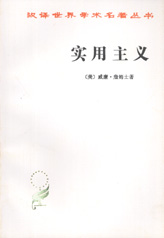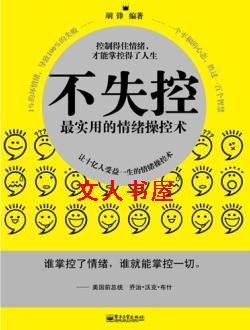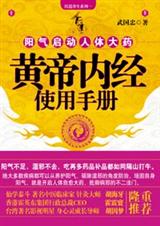牛津实用英语语法-第75章
按键盘上方向键 ← 或 → 可快速上下翻页,按键盘上的 Enter 键可回到本书目录页,按键盘上方向键 ↑ 可回到本页顶部!
————未阅读完?加入书签已便下次继续阅读!
总统号召人民为祖国的利益做出牺牲。
The chairman called on the secretary to read the minutes of the lastmeeting.
主席要求秘书朗读上次会议的记录。
3 call的其他词组
call off(tr)取消尚未开始的事,放弃已在进行中的事:
They had to call off the match as the ground was too wet to play on.
(call the match off/call it off)
因为场地太湿无法比赛,人们不得不取消这次比赛。
When the fog got thicker the search was called off.
雾愈来愈浓了,只得放弃了搜索。
call out(tr)召唤某人出来处理外面的事(常用于指部队被召集走出营房对付民众骚乱):
The police couldn’t control the mob so troops were called out.
警察无法控制乱民,因此出动了军队。
The Fire Brigade was called out several times on the night of 5 November to put out fires started by fireworks.
11月5日晚上,消防队多次奉召出动,以扑灭因燃放焰火而引起的火灾。
Doctors don’t much like being called out at night.
医生们不太喜欢夜间出诊。
call up(tr)
(a)征去服兵役:
In countries where there is conscription men are called up at the age of eighteen.(call up men/call men up/call them up)
在实行征兵制的国家里,18岁的男子要应征服役。
(b)给……打电话:
I called Tom up and told him the news.(calld up Tom/called him up)
我给汤姆打电话,把消息告诉他了。
care
not to care about(tr)对……淡漠,不关心……:
The professor said that he was interested only in research;he didn’t really care about students.
教授说他只对研究感兴趣;他并不真的关心学生。
care for(tr)
(a)喜欢(很少用于肯定句):
He doen’t care for films about war.
他不喜欢战争影片。
(b)照看(除被动态外,较少使用):
The house looked well cared for(=had been well looked after/was ingood condition).
房子看起来照管得很好。
carry
carry on(intr)继续(常指工作或职责):
I can’t carry on alone any longer;I’ll have to get help.
我无法再一个人继续下去了;我得找人帮忙。
carry on with(tr)与上用法相似:
The doctor told her to carry on with the treatment.
医生告诉她应该继续这种疗法。
carry out(tr)履行(职责),服从(命令),执行(指令),(把威胁要做的事)付诸行动:
You are not meant to think for yourself;you are here to carry out my or…ders.
你们的职责不是自己思考;叫你们来这里是要你们执行我的命令。
The Water Board carried out their threat to cut off our water supply.
自来水公司董事会把他们的威胁付诸行动,停止供应我们水了。(他们威胁要这样做,也真的这样做了。)
He read the instructions but he didn’t carry them out.
他看了指示,但没有遵照执行。
catch
catch up with(tr),catch up(tr/intr)赶上但没超过:
I started last in the race but I soon caught up with the others.(caught them up/cautht up)
我在赛跑中最后一个起跑,但不久就赶上了其他人。
You’ve missed a whole term;you’ll have to work hard to catch up withthe rest of the class.(catch them up/catch up)
你缺了整整一学期的课,得努力学习以便赶上同班的其他人。
clean
clean out(tr) a room/cupboard/drawer etc.彻底清理打扫(房间/碗柜/抽屉等):
I must clean out the spare room.(clean the spare room out/clean it out)
我得把那间备用房(客房)彻底清扫一下。
clean up(tr) a mess, eg. anything spilt清扫(脏物,如撒出的东西):
Clean up any spilt paint.(clean the spilt paint up/clean it up)
如果有溅出来的油漆,把它收拾干净。
clean up(intr)同上用法相同:
These painters always clean up when they’ve finished.
这几位油漆工完工之后总要把场地打扫干净。
clear
clear away(tr)把物件拿开以便腾出地方:
Could you clear away these papers?(clear these papers away/clear them away)
你能不能把这些文件清除开?
clear away(intr)散开:
The clouds soon cleared away and it became quite warm.
云很快就散开了,天气变得相当暖和。
clear off(intr)走开(指室外) clear out(intr)走开(指室内)二者都是口语用法;作为命令时这样说是相当不礼貌的:
‘You clear off,’ said the farmer angrily.‘You’ve no right to put your caravans in my field without even asking my permission.’
“你们给我走开,”农民愤怒地说,“你们没有权利连我的许可都没征得就把住人的大篷车停在我的地里。”
Clear out! If I find you in this building again,I’ll report you to the po…lice.
走开!你要再到这幢建筑里来,我就将你报警了。
clear out(tr)把(房间/碗柜/抽屉等)腾空以便放别的东西:
I’ll clear out this drawer and you can put your things in it.( clear this drawer out/clear it out)
我会把这个抽屉腾空,这样你就能把你的东西放在里面了。
clear up(intr)有云或雨后天晴了:
The sky looks a bit cloudy now but I think it will clear up.
现在天看来有点阴,但我想天会晴的。
clear up(tr/intr)收拾整齐干净:
When you are cooking it’s best to clear up as you go,instead of leaving everything to the end and having a terrible pile of things to deal with.
烹调时,最好是边干边收拾,而不要把活留到最后而剩下一大堆东西要打扫收拾。
Clear up this mess.(clear this mess up/clear it up)
把这堆乱糟糟的东西收拾干净。
clear up(tr)
(a)完成(某种尚待完成的工作):
I have some letters which I must clear up before I leave tonight.
有几封信我今天晚上走以前必须写完。
(b)侦破(不可思议的怪事、案件等):
In a great many detective stories when the police are baffled an amateurdetective es along and clears up the mystery.(clears it up)
在许多侦探小说中,当警察束手无策时,来了个业余侦探,把案子给破了。
close
close down(tr/intr)永远关闭,停业(指商店或买卖等):
Trade was so bad that many small shops closed down and big shops closedsome of their branches down.(closed down some branches/closed themdown)
市面很差,许多小店停业了,大商店也关了一些分店。
close in(intr)逼近,从四面凑近(常用于雾、夜色、敌人等):
As the mist was closing in we decided to stay where we were.
由于雾越来越逼近,我们决定留在原地不动。
close up(intr)缩小间距(指一行人):
If you children closed up a bit there’d be room for another one on thisseat.
你们几个孩子要是挤一挤,这座位上还能加一个人。
e
e across/upon(tr)碰巧发现,碰巧找到:
When I was looking for my passport I came across these old photographs.
我在找护照时碰巧找到了这些旧相片。
e along/on(intr)和我一起来,陪伴我去(常用来敦促犹豫不决的人或拖拖拉拉的人):
e on,or we’ll be late.
快点,否则我们要迟到了。
e away(intr)(和我一起)走/离开:
e away now, It’s time to go home.
快走吧。该回家了。
e away/off(intr)自行脱落:
When I pickd up the teapot the handle came away in my hand.
我拿起茶壶时,茶壶掉了而只剩茶壶柄在我手里。
e in(intr),e into( tr)进入:
Someone knocked at my door and I said,‘e in.’
有人敲我的门,我说:“进来。”
e into the garden and I’ll show you my roses.
到花园里来,我给你看我的玫瑰花。
e off(intr)
(a)(计划或阴谋)成功(用于否定句):
I’m afraid that scheme of yours won’t e off.It needs more capitalthan you have available.
恐怕你那个计划不会成功。它需要的投资不是你能拿得出来的。
(b) 发生,按预先安排的那样发生:
—When is the wedding ing off?
—Next June.
—婚礼什么时候举行?
—6月份。
如果我们说The duchess was to have opened the bazaar(公爵夫人本来是要为义卖主持开幕仪式的),我们的意思是说计划是那样订的,但没有实现(她本安排好要去为它揭幕,但后来不得不取消这一安排)。
(c)(话剧、展览等)结束一轮演出或展出:
‘Lady windermere’s Fan’is ing off next week.You’d better hurryif you want to see it.
《少奶奶的扇子》下周要结束演出了。你要想看的话得抓紧点。
e out(intr)
(a)被揭露或发觉(这里的主语常是the truth真相/the facts事实/the whol story 全部内情等;并且一般指有关人士想竭力掩盖的事实即丑闻等):
They deceived everybody till they quarrelled among themselves;then onepublicly denounced the others and the whole truth came out.
他们把大家都骗了,直到后来内讧起来,其中一个人公开揭发了别人,这才真相大白。
(b)(书籍)发行:
Her new novel will be ing out in time for the Christmas sales.
她的新小说将赶在圣诞节购物潮时发行。
(c)(污渍)消除,洗掉:
Tomato stains don’t usually e out.
西红柿污渍一般洗不净。
e round(intr)
(a)终于接受以前所反对的建议:
Her father at first refused to let her study abroad but he came round(to it)in the end.
她父亲起初反对她去外国念书,但终于回心转意了。(他说可以让她去。)
(b)到某人的家里来:
I’ll e round after dinner and tell you the plan.
我晚饭后来转一下,把计划说给你听。
e round/to(intr;to重读) 恢复知觉:
When we found him he was unconscious but he came round/to in half anhour and explained that he had been attacked and robbed.
我们发现他时他已失去知觉,但是半小时后他恢复了知觉,说他遭到殴打抢劫。
e up(intr)
(a) 升到水面,生长出来:
A diver with an aqualung doesn’t have to keep ing up for air;he canstay underwater for quite a long time.
备有潜水供氧器的潜水员无需不断升出水面呼吸;他可以在水下停留相当长的时间。
Weeds are ing up everywhere.
杂草到处蔓生。
(b)被提到:
The question of the caretaker’s wages came up at the last meeting.
在上次会议中提到了看楼人的工资问题。
e up(intr),e up to(tr)走近,来到能说话的近处:
A policeman was standing a few yards away.He came up to me and said,‘You can’t park here.’
几码外站着一位警察。他走过来并对我说:“你不能把车子停放在这里。”
crop
crop up(intr)出现,意外地或偶然地出现(主语常是一个抽象名词如difficulties困难/the subject题目或是一个代词):
At first all sorts of difficulties cropped up and delayed us.Later we learnthow to anticipate these.
起初冒出来了各式各样的困难,耽搁了我们。后来我们学会了如何为这些困难预作准备。
cut
cut down a tre





